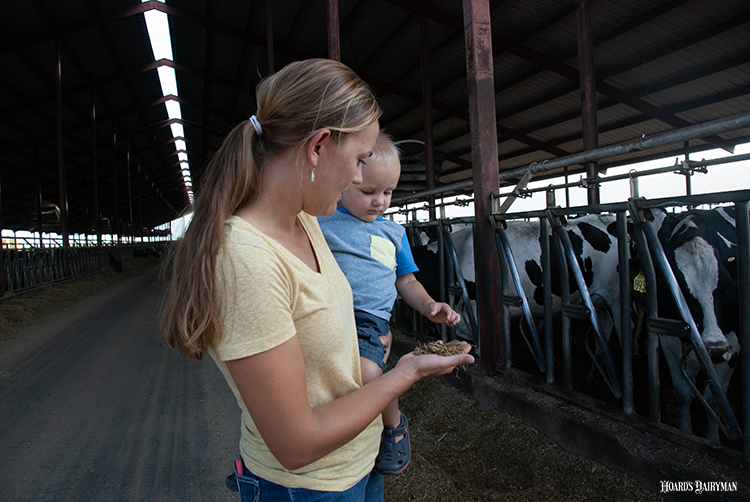
A farm can be a great place to raise children. At the same time, it is often difficult for farmers to balance their farm work with childcare, and a new survey conducted by the National Farm Medicine Center, the National Children’s Center for Rural and Agricultural Health and Safety, and The Ohio State University reports this can be detrimental for the farm business.
Farming parents face the options of taking time off work to care for their child or, when they must work, either finding care or bringing the child with them. Of the more than 860 farm families from 47 states who responded to the survey, 77% said they made changes to the farm to meet their personal and professional responsibilities that allowed them to care for their children themselves. These most often included reducing hours at or quitting an off-farm job, followed by reducing hours or quitting working on the farm or hiring more farm employees.
Three-quarters of farm families reported that taking care of children affects their ability to get farm work done at least sometimes. But for many families, having someone else look after their child is not feasible.
The same share (74%) of respondents said they had difficulty securing childcare just in the last five years. Most often, this is because it is unavailable or unaffordable. Distance and quality of the childcare are also inhibitors. And although two-thirds of families reported having family and friends close enough to help with childcare, those individuals were often cited as too busy to help or unable to due to health concerns.
With those limitations, many parents find themselves bringing children to their work — 86% of respondents said they take children on active worksites due to a lack of alternatives. This can be dangerous if children are exposed to conditions or chores they are not yet prepared for. Farm families recognize this, as two out of three consider access to affordable childcare an important strategy for keeping children safe.
Instead, when children are taken on farms, it’s the parent’s responsibility to keep their child safe in what is one of the most dangerous occupations. This again limits the adult’s attention to their business, but the vicious cycle means their other option is to pay for childcare. For more than a quarter of the survey’s farm families, childcare costs limited how much they were able to invest in their farm.
Finding a childcare solution for farming families needs to be a priority if we want to see farms continue to thrive, said one survey respondent. It is a matter of physical, mental, and financial health for parents, children, and farm businesses.








